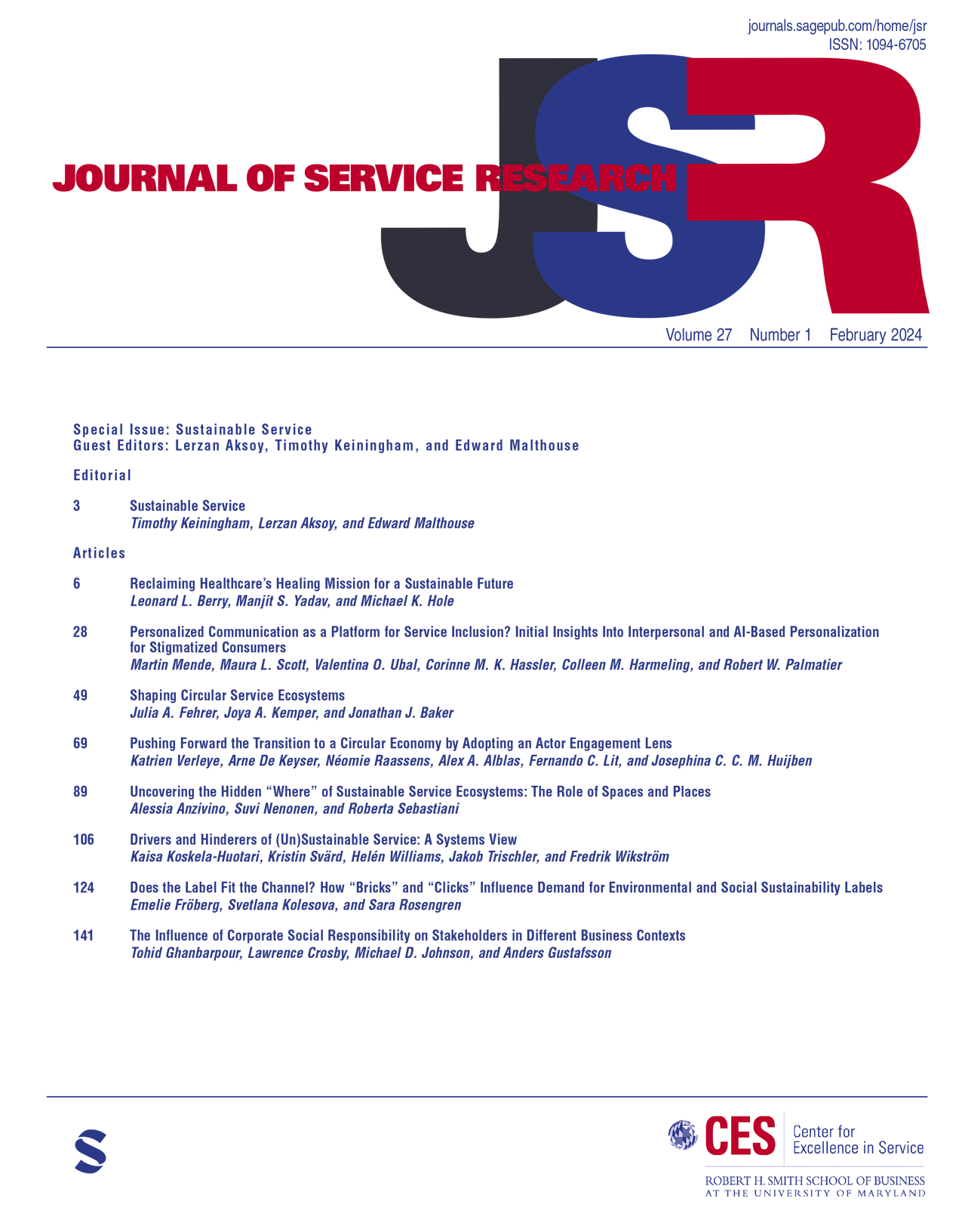Healing the Digital Divide With Digital Inclusion: Enabling Human Capabilities
IF 8.6
2区 管理学
Q1 BUSINESS
引用次数: 9
Abstract
The “digital divide” refers to societal-level inequalities of digital access, capabilities, and outcomes. To explore how the digital divide affects customers experiencing vulnerability, service interactions in essential service settings (health care, education, and social services) were empirically investigated and practices service system members might adopt to address vulnerability were identified. This research upframes the pillars of service inclusion framework to define human capabilities that result from service inclusion practices. Three research topics were addressed: how the digital divide affects vulnerability (RQ1), how the digital divide can be addressed through service inclusion practices (RQ2), and how service inclusion practices enable human capabilities for digital inclusion (RQ3). The findings illuminate: (1) how service employees can engage in service inclusion practices to address the digital divide (by letting go of rules and perspectives, sharing control, providing services beyond job scope, and facilitating social connections), and (2) how these service inclusion practices build human capabilities for digital inclusion (by building basic skills and capabilities for meaningful outcomes through role modeling, coaching, customer-to-customer mentoring, and expanding networks). Contributions include conceptual models of service inclusion practices and fostering digital inclusion that specify a new meso level service organization pathway for healing the digital divide.以数字包容弥合数字鸿沟:增强人的能力
“数字鸿沟”指的是数字获取、能力和结果在社会层面的不平等。为了探索数字鸿沟如何影响经历脆弱性的客户,对基本服务环境(医疗保健、教育和社会服务)中的服务交互进行了实证调查,并确定了服务系统成员可能采取的解决脆弱性的做法。本研究构建了服务包容框架的支柱,以定义由服务包容实践产生的人类能力。讨论了三个研究主题:数字鸿沟如何影响脆弱性(RQ1),如何通过服务包容实践(RQ2)解决数字鸿沟,以及服务包容实践如何使人类能够实现数字包容(RQ3)。研究结果表明:(1)服务业员工如何参与服务包容实践以解决数字鸿沟(通过放弃规则和观点、分享控制权、提供工作范围以外的服务和促进社会联系);(2)这些服务包容实践如何为数字包容培养人的能力(通过角色建模、指导、客户对客户指导和扩展网络,培养获得有意义成果的基本技能和能力)。贡献包括服务包容实践的概念模型和促进数字包容,为弥合数字鸿沟指明了新的中观服务组织途径。
本文章由计算机程序翻译,如有差异,请以英文原文为准。
求助全文
约1分钟内获得全文
求助全文
来源期刊

Journal of Service Research
BUSINESS-
CiteScore
20.30
自引率
6.50%
发文量
28
期刊介绍:
The Journal of Service Research (JSR) is recognized as the foremost service research journal globally. It is an indispensable resource for staying updated on the latest advancements in service research. With its accessible and applicable approach, JSR equips readers with the essential knowledge and strategies needed to navigate an increasingly service-oriented economy. Brimming with contributions from esteemed service professionals and scholars, JSR presents a wealth of articles that offer invaluable insights from academia and industry alike.
 求助内容:
求助内容: 应助结果提醒方式:
应助结果提醒方式:


